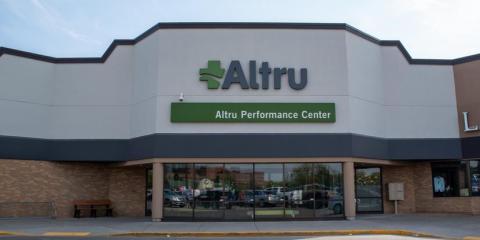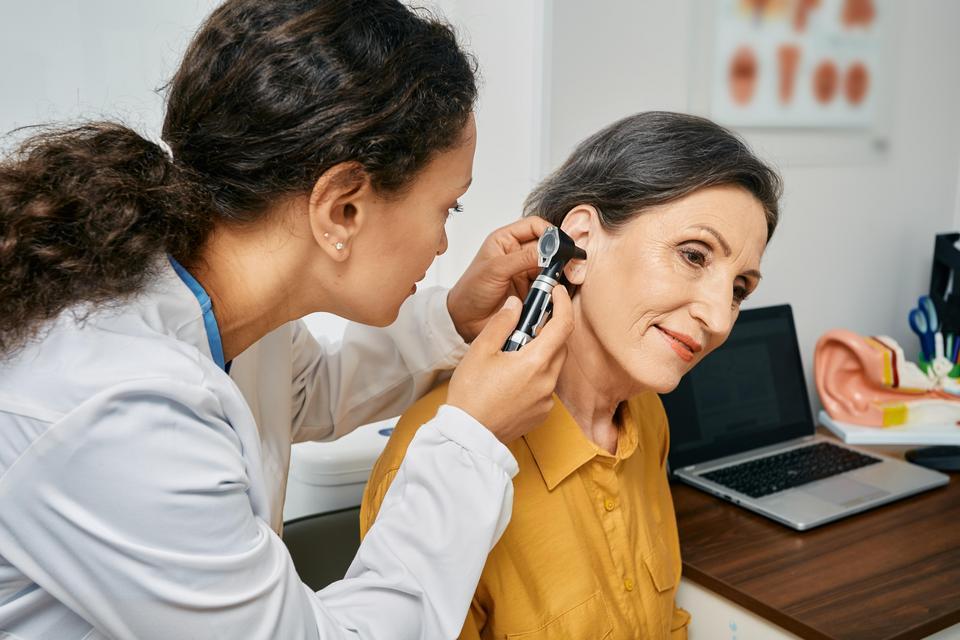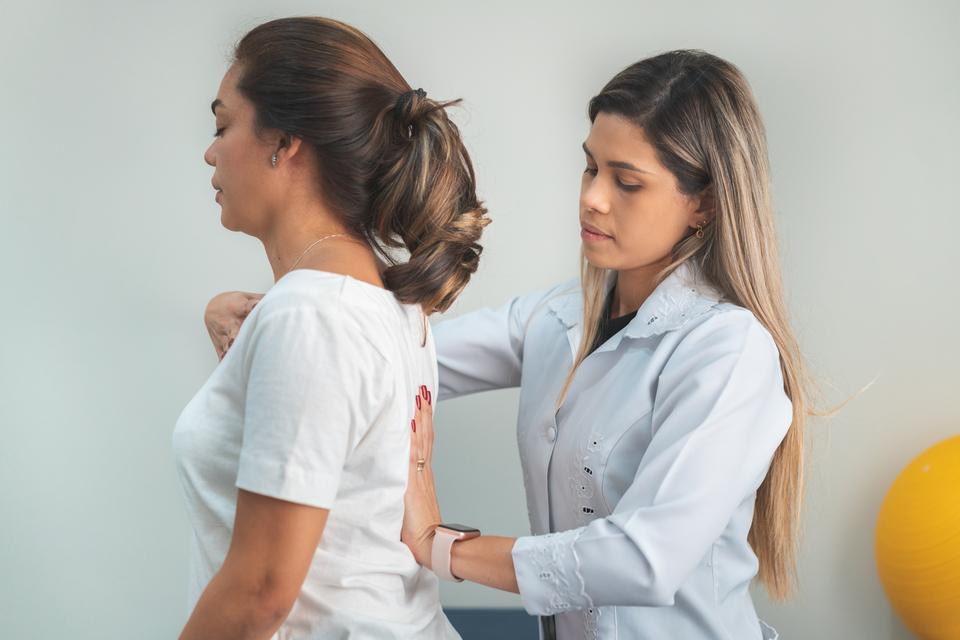Acute or chronic problems with your hands or arms can significantly affect your ability to work, perform everyday tasks and enjoy favorite activities. Therapists who specialize in hand therapy help patients who suffer from pain and other symptoms to find relief and regain function.
Using their expertise in anatomy, physiology and kinesiology, Altru hand therapists treat problems of the shoulder, elbow, wrist and hand using a variety of techniques.
Our hand therapists have a unique understanding of all upper extremity problems. They are able to determine the most effective treatment for you, and they can create a rehabilitation program tailored to your unique needs.
Hand Therapy Services
The injuries and disease processes that benefit from specialized hand therapy services include:
- Burns and frostbite. Severe burns or frostbite—tissue damage caused by exposure to extreme cold—may require hand therapy to restore mobility and function.
- Congenital deformities. These are abnormalities of the hands or arms that a person is born with, such as more than five fingers on one hand, webbed fingers or one arm that’s longer than the other.
- Cumulative trauma disorders/repetitive use injuries. These injuries or conditions arise due to repetitive use of the hands or arms, often on the job.
- Fractures. A broken bone in the hand or arm may benefit from hand therapy to restore function and range of motion.
- Impingement syndrome. This is when the acromion—the bone that sits atop the shoulder joint—grinds against the rotator cuff (a group of tendons and muscles) and bursa (a fluid-filled pouch that reduces friction during movement).
- Nerve injuries, compressions and lacerations. Common nerve injuries include tears in the nerves and conditions that place too much pressure on the nerves, such as carpal tunnel syndrome.
- Sprains and strains. A sprain occurs when a ligament stretches too far or tears. A strain is when a muscle or tendon stretches or tears.
- Tendinitis. This is swelling of tendons in the hands or wrists that occurs due to repetitive motion, often related to work or sports.
- Tendon lacerations and avulsion fractures. A laceration is a tear in the tendon, and an avulsion fracture is an injury that occurs when a small piece of bone attached to a tendon or ligament separates from the rest of the bone.
- Wound care and scar management. Hand therapists can provide care for difficult-to-heal wounds and treat pain and loss of function caused by scars, which can affect soft tissue.
Evaluation and Treatment
Specialized care techniques available include:
- Adaptive and compensatory equipment and training. A hand therapist can teach you to use tools, devices and strategies that will help you overcome loss of function in the hands.
- Instrument-assisted soft tissue mobilization. A treatment for pain, stiffness, scarring and other conditions, Astym therapy and the Graston technique use specialized instruments placed on the skin to jumpstart the body’s natural healing process.
- Baltimore Therapeutic Equipment (BTE) work simulator. This device simulates tasks and movements that you may encounter at home or on the job.
- Bracing and splinting. Hand therapists specialize in designing custom splints to protect surgical repairs, stabilize joints and promote motion.
- Customized stretching and strengthening program. This can help reduce pain and increase mobility and function following injury or surgery.
- Edema control. A hand therapist can recommend techniques to control swelling (edema) in the hands and arms.
- Manual therapy. This hands-on form of therapy involves massage, manipulation and other approaches, including joint mobilization and myofascial techniques, which can relieve muscle pain.
- Pain reduction techniques and modalities. These include heat and cold, ultrasound, whirlpool, electrical stimulation, iontophoresis (delivery of medication via a skin patch) and fluidotherapy (a type of heat therapy).
- Physical conditioning equipment. Our hand therapists use a variety of equipment to improve hand and arm fitness.
- Task analysis. A hand therapist will scrutinize your ability to complete everyday tasks or tasks that are important to you to pinpoint challenges and help you overcome them.
Referrals
You may call to schedule an appointment or a medical professional may arrange for one on your behalf, but a physician’s referral is required. Our staff will communicate with your referring provider to share information about treatment planning, goals and your progress.
Evaluation
During your initial visit, a hand therapist will evaluate your condition. This evaluation involves reviewing your health history, determining how you could benefit from hand therapy, outlining treatment goals and developing a treatment plan.
Altru’s hand therapy is located in the Altru Performance Center. For more information, call 701.780.2300 or 800.732.4277, ext. 2300.










